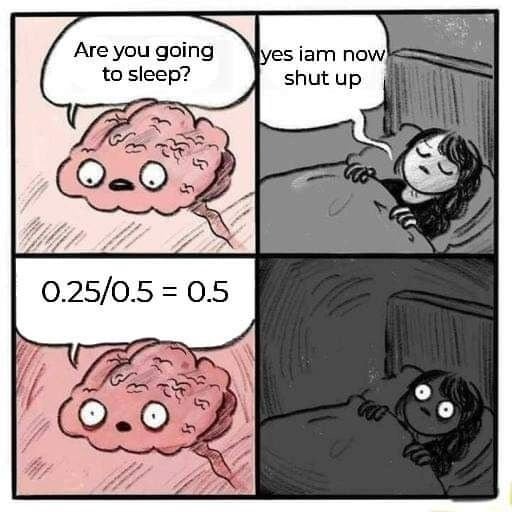this post was submitted on 03 Mar 2024
348 points (86.6% liked)
memes
10428 readers
3343 users here now
Community rules
1. Be civil
No trolling, bigotry or other insulting / annoying behaviour
2. No politics
This is non-politics community. For political memes please go to !politicalmemes@lemmy.world
3. No recent reposts
Check for reposts when posting a meme, you can only repost after 1 month
4. No bots
No bots without the express approval of the mods or the admins
5. No Spam/Ads
No advertisements or spam. This is an instance rule and the only way to live.
Sister communities
- !tenforward@lemmy.world : Star Trek memes, chat and shitposts
- !lemmyshitpost@lemmy.world : Lemmy Shitposts, anything and everything goes.
- !linuxmemes@lemmy.world : Linux themed memes
- !comicstrips@lemmy.world : for those who love comic stories.
founded 1 year ago
MODERATORS
you are viewing a single comment's thread
view the rest of the comments
view the rest of the comments

Huh, thanks for the insight. I've never been able to get my head around weird division like this, and that sounds like a great rule of thumb for thinking about it.
Dividing by a fraction is the same as flipping one it on its head and multiplying it.
0.25/0.5 is (1/4)/(1/2)
To multiply it we'd flip one, either works but for this example I decided to flip the second one: (1/4) * (2/1)
The top half of the fractions (numerators) multiply together, then the bottoms (denominators) multiply together. (1*2)/(4*1) = 2/4 which reduces to 1/2
I learned this one weird trick (maffemetishuns hate him!!!) a few years back when I went back to education and honestly it revolutionised how I looked at fraction division.